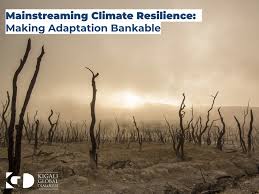
Certified PPP Professional (CP3P) practitioners will know, especially referring to Chapter 6 of the APMG CP3P Guide that the private sector views environmental risks including climate resilience as a complex set of risks to be managed and mitigated during the design, construction and operational phases of a PPP project. This is necessary to attain the value for money expected by the government and the targeted rate of return required by the private sector.
Governments also knows that they need to ensure that appropriate climate resilience outcomes are targeted and incorporated during every step of the project development phase. Government project teams also need to be suitably experienced to be able to express their requirements clearly to their specialist transaction advisors.
The World Bank article, Trends in Mainstreaming Climate Resilience in Large Scale, Multi-sector Infrastructure PPPs highlights that climate resilience is not being considered in PPP policy frameworks for infrastructure, despite the fact that significant progress has been made over the last number of years by governments and the multilateral development banks to develop policy frameworks, processes and tools.
The article presents a synthesis of insights from the significant body of knowledge on both climate risks to infrastructure and on how to implement infrastructure PPPs.
The article also identified the challenge that there is often the belief that incorporating resilience to climate change in major infrastructure projects will increase the overall cost of the project and the cost of services provided to the public. This may well not be the case since the additional costs of making new infrastructure resilient typically amount to only a 1 to 2 per cent increase in overall project costs.
Summary of key actions for international development partners, governments and the private sector to consider


